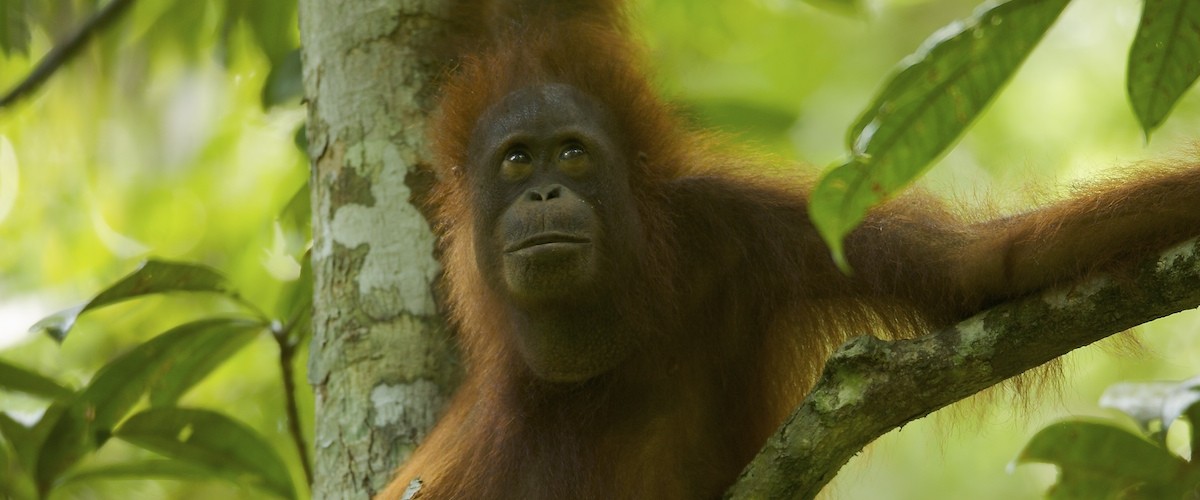By Muhlis Saputra, BOCS Recipient
Through the Bornean Orangutan Caring Scholarship (BOCS), offered to me by the Gunung Palung Orangutan Conservation Program, I have carried out a one month internship for each year of my studies. I am currently in my final year at Tanjungpura University, where I study forestry, so last month I spent my internship at Cabang Panti, the research station in Gunung Palung National Park (GPNP).
 |
|
Muhlis (second left) with Cabang Panti research assistants, other Indonesian students and National Park staff.
|
The expedition started by making the trek into GPNP to reach the research station. This may sound like an easy task, but I soon realized that it is quite a long and strenuous hike at around 15 kilometers, or about 9 miles. The most challenging part was going through the peat swamp that had recently burned. It was extremely hot and difficult to walk through as my boots were constantly stuck in the muck. Another difficult segment of the hike involved crossing two sections of the river. At first I was nervous, but I had the encouragement of some of my fellow BOCS students with me. After 5 hours, I was extremely tired, but we finally reached our destination.
The next day I spent getting myself acquainted with my home for the next month. My sleeping quarters were in a new building constructed by the National Park. It has a very basic set-up, but did provide generator supplied power for 7 hours per day. I was introduced to the research assistants and given more information about my daily responsibilities while at camp. That day I also learned how to use a handheld GPS and soon found this to be one of the most valuable tools while in the forest.
 |
|
The new camping quarters at Cabang Panti Research Station.
|
My days for the next few weeks were full of adventure. Every morning, I would wake up early, eat breakfast and head out into the forest with the field assistants in search of orangutans. Once an orangutan was found, I would spend time observing their behavior. I would monitor what the animal was doing, what type of food it was eating and any other notable characteristics. One of the less pleasing tasks involved recording orangutan bowel movements. While this was quite smelly, I learned that we can gain a great deal of information about seed dispersal through this method. I recorded all of my findings with the new Ipads. Just before dusk, I would make my way back to camp to eat dinner, relax and download my data. Dr. Cheryl Knott was in the forest with me for my first two weeks and I enjoyed being able to learn about orangutans directly from her.
 |
| Muhlis downloading the data collected during the day after he arrives back at Cabang Panti. |
I am truly honored and proud to be one of the few BOCS recipients. The experiences I have been afforded have been incredible and will have lifelong effects. From these opportunities, I have learned a sense of responsibility, teamwork and proper research techniques. One of my hobbies is photography. In between data collection, I was able to capture images of orangutans and other wildlife in their natural habitat. I am grateful for the opportunity to sharpen my skills and add material to my portfolio. Moving forward, I plan to use the skills I have gained in life and in the field of forestry and conservation.
 |
| Muhlis observing orangutans in Gunung Palung National Park. |






